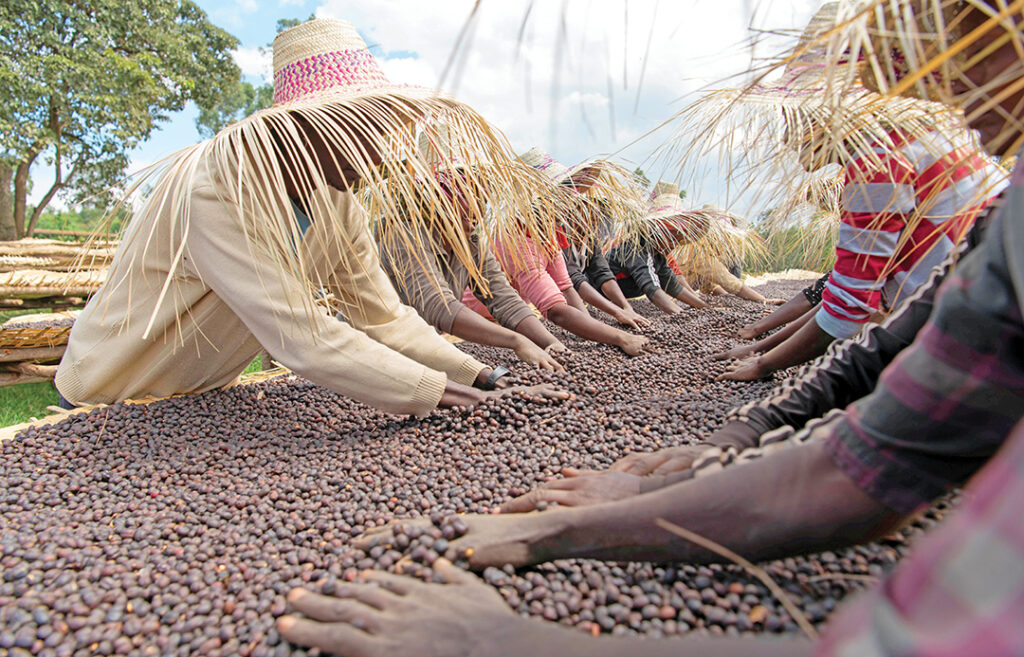WORLD BANK
Nestled in the dense rainforest of the Kafa Biosphere Reserve in southwest Ethiopia are thousands of genetic variants of coffee, an important seed bank of wild arabica that faces extinction.
Preserving Ethiopia’s prized arabica coffee is key not only for coffee drinkers worldwide, but also for the estimated 15 million people in Ethiopia whose livelihoods depend on it. Ethiopia is Africa’s biggest coffee producer and the world’s fifth-largest exporter. In 2018, Ethiopia’s coffee production was 7.5 million 60-kilogram bags, according to the International Coffee Organization.
The Kafa zone, about 460 kilometers southwest of Addis Ababa, is considered the birthplace of wild arabica. The arabica plants found here are being used to develop coffee varieties that are resistant to diseases and have the potential to survive in a changing climate.
A 2019 study found that 60% of 124 wild coffee species are threatened with extinction because of land use change, deforestation and climate factors. Wild coffee, study author Aaron Davis said, is vital for the long-term viability of the coffee sector.
“The sheer scale of genetic diversity found in these wild places simply cannot be replicated in botanic gardens or research collections,” Davis said. “We will need these resources more than ever over this century.”
Designated in 2010 by the United Nations as a national biosphere, the Kafa Biosphere Reserve extends across 760,000 hectares and has a population of about 1 million people. It is known as Ethiopia’s “green lung” for the carbon dioxide the forest consumes.
The World Bank’s Sustainable Land Management Project has worked with farmers in the area around the biosphere, providing advice on sustainable farming practices and supporting efforts to reverse deforestation and forest degradation, improve soil health, and preserve biodiversity.
“By boosting livelihoods in the transitional zone, this should lessen pressure on the core zone and reduce the need for communities to access resources there, thus preserving wild coffee in the long run,” said Paul Martin of the World Bank.

